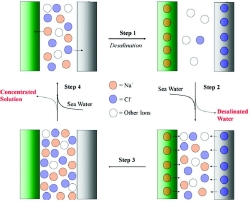Researchers at the University of Bedfordshire have developed a new technique for powering electronic devices.
The system, developed by Prof Ben Allen at the Centre for Wireless Research, uses radio waves as power.
Believed to be a world first, the team claims it could eventually eliminate the need for conventional batteries.
The university has now filed a patent application to secure exclusive rights to the technique.
‘Spare time’
Prof Allen and his team, including David Jazani and Tahima Ajmal, have created a system to use medium wave frequencies to replace batteries in small everyday gadgets like clocks or remote controls.
The new technique uses the “waste” energy of radio waves and has been developed as part of the university’s research into “power harvesting”.
Prof Allen said that as radio waves have energy – like light waves, sound waves or wind waves – then in theory these waves could be used to create power.
“The emerging area of power harvesting technology promises to reduce our reliance on conventional batteries,” he said.
Continue reading the main story
“Start Quote
The emerging area of power harvesting technology promises to reduce our reliance on conventional batteries”
Prof Ben Allen University of Bedfordshire
“It’s a really exciting way of taking power from other sources than what we would normally think of.”
via BBC News – Researchers develop new system to ‘eliminate’ batteries.
So, every now and again we see information about this kind of thing. I still can’t help getting excited about it, and hopefully this FINALLY will be something we’ll be seeing within a year or two. This would be fantastic (and not more than a little awesome for homeless people who have to constantly seek a place to plug their devices in to recharge (if it’s news to you that many homeless people have devices, you clearly don’t realize how cheap devices have gotten…my phone was $10, no contract), or somehow find a way to go buy batteries).






